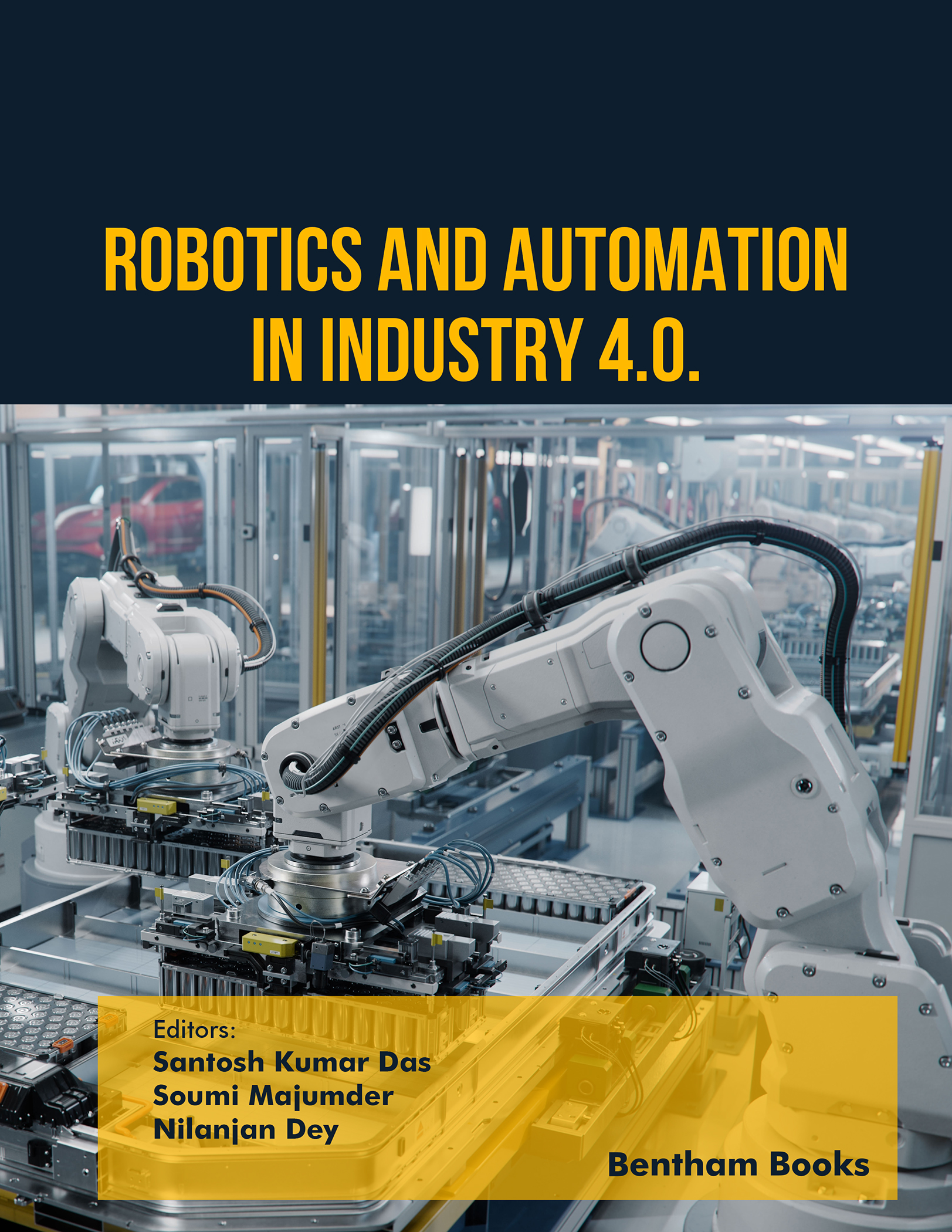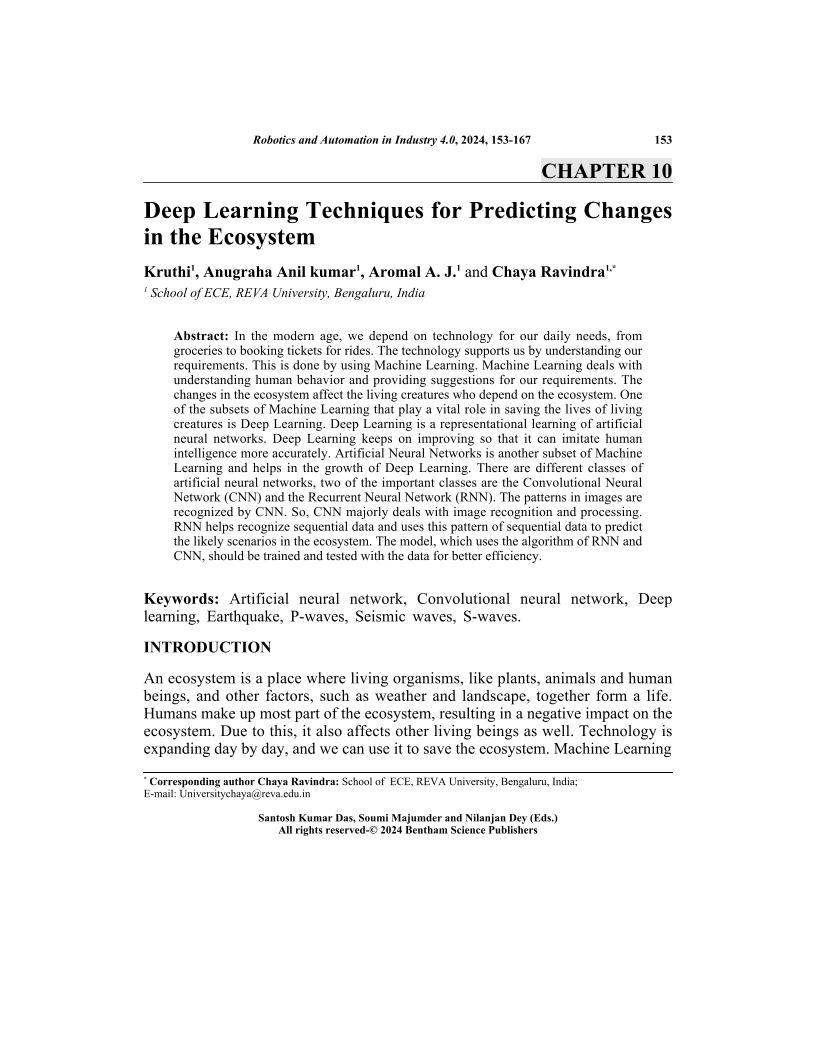Deep Learning Techniques for Predicting Changes in the Ecosystem

- Authors: Kruthi1, Anugraha Anil kumar2, Aromal A. J.3, Chaya Ravindra4
-
View Affiliations Hide Affiliations1 School of ECE, REVA University, Bengaluru, India 2 School of ECE, REVA University, Bengaluru, India 3 School of ECE, REVA University, Bengaluru, India 4 School of ECE, REVA University, Bengaluru, India
- Source: Robotics and Automation in Industry 4.0 , pp 153-167
- Publication Date: October 2024
- Language: English
Deep Learning Techniques for Predicting Changes in the Ecosystem, Page 1 of 1
< Previous page | Next page > /docserver/preview/fulltext/9789815223491/chapter-10-1.gif
In the modern age, we depend on technology for our daily needs, from groceries to booking tickets for rides. The technology supports us by understanding our requirements. This is done by using Machine Learning. Machine Learning deals with understanding human behavior and providing suggestions for our requirements. The changes in the ecosystem affect the living creatures who depend on the ecosystem. One of the subsets of Machine Learning that play a vital role in saving the lives of living creatures is Deep Learning. Deep Learning is a representational learning of artificial neural networks. Deep Learning keeps on improving so that it can imitate human intelligence more accurately. Artificial Neural Networks is another subset of Machine Learning and helps in the growth of Deep Learning. There are different classes of artificial neural networks, two of the important classes are the Convolutional Neural Network (CNN) and the Recurrent Neural Network (RNN). The patterns in images are recognized by CNN. So, CNN majorly deals with image recognition and processing. RNN helps recognize sequential data and uses this pattern of sequential data to predict the likely scenarios in the ecosystem. The model, which uses the algorithm of RNN and CNN, should be trained and tested with the data for better efficiency.
-
From This Site
/content/books/9789815223491.chapter-10dcterms_subject,pub_keyword-contentType:Journal -contentType:Figure -contentType:Table -contentType:SupplementaryData105

